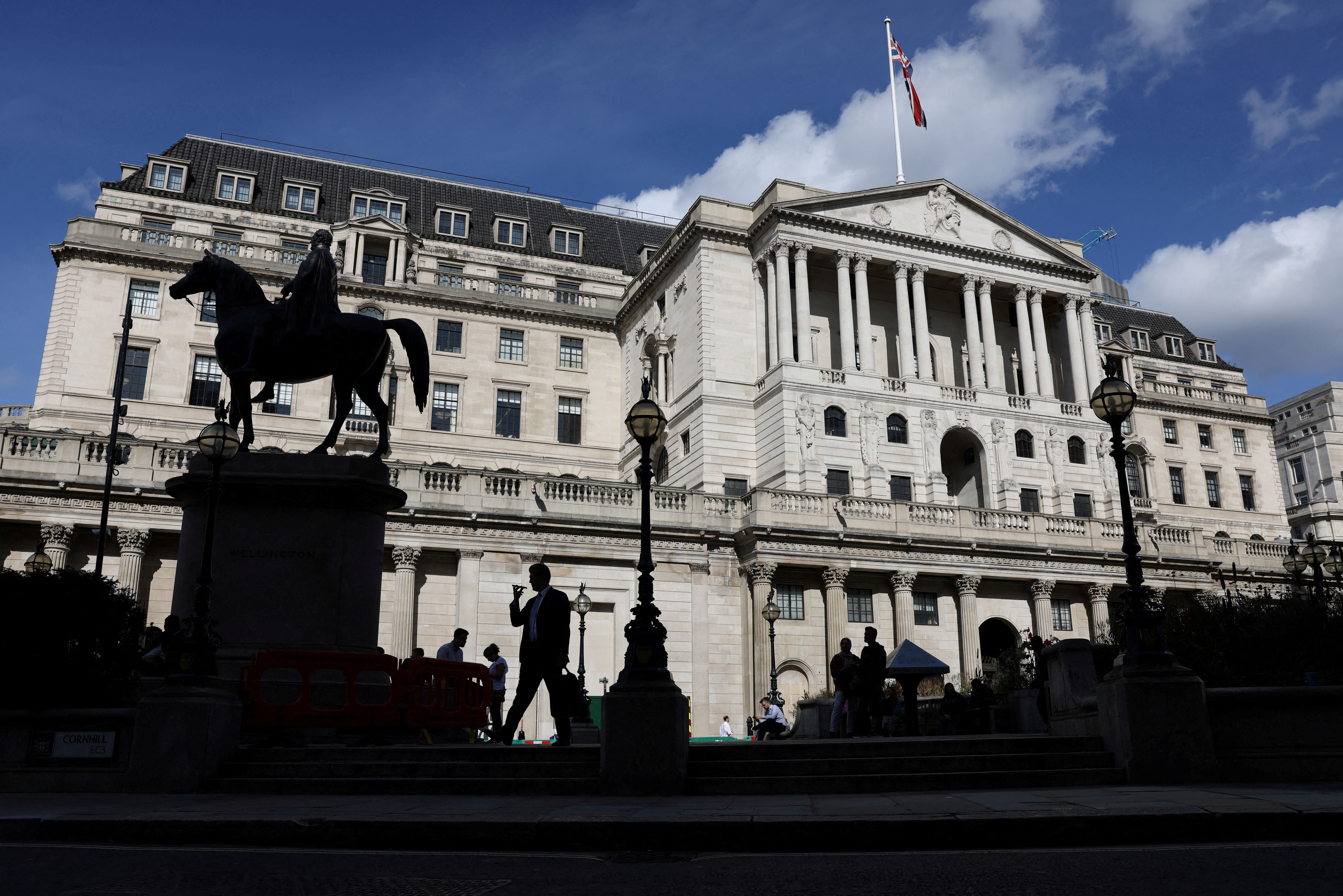
A pedestrian walks past the Bank of England in the City of London, Britain, September 25, 2023. REUTERS/Hollie Adams/File Photo Acquire Licensing Rights
LONDON, Nov 6 (Reuters) – The Bank of England told lenders on Monday that they must avoid any risk that customers might confuse new forms of e-money like ‘stablecoins’ with standard deposits which are guaranteed against bank failures.
Stablecoins are a cryptocurrency backed by a traditional currency such as sterling or the U.S. dollar, or an asset.
The sector is still tiny compared to the wider financial sector, but regulators are under pressure to keep abreast of private sector developments in retail payments as central banks like the BoE consider issuing a digital version of their currency.
The BoE and Financial Conduct Authority on Monday proposed a regulatory regime for systemic retail payment systems using stablecoins and related service providers such as payment companies, marking Britain’s initial set of rules in a largely unregulated crypto sector.
To the extent that systemic payment systems using stablecoins pose similar risks as other systemic payment systems, they should be subject to equivalent regulatory standards, the BoE said.
The proposals focus on payment firms, but the BoE also set out in a letter to bank CEOs how banks should handle tokenised deposits, if they offer them.
“If deposit-takers or their groups want to issue e-money or regulated stablecoins to retail customers, then this should be done from separate non-deposit-taking and insolvency-remote entities,” the BoE said.
Cash deposits are currently covered by insurance if a bank goes bust, but separate e-money or stablecoin accounts would not be.
There are no systemic sterling stablecoins, but Tether, issuer of the world’s largest stablecoin, pegged to the U.S. dollar and backed by assets including U.S. government debt, said last year it would launch a sterling stablecoin. It had no immediate comment on the UK proposals.
The regulators are seeking feedback by Feb. 6. More detailed draft rules will be put out to a further public consultation in the second half of 2024, with final rules issued some time later.
REDEMPTION AT PAR
The proposals require sterling stablecoins to be fully backed by deposits at the BoE, have capital requirements to make up any potential shortfalls, and safeguards on how they are held by firms on a customer’s behalf.
Customers would have a right to swift redemptions at par, but there would be a yet-to-be-determined holding limit to avoid stablecoins being used for wholesale purposes.
Arrangers of stablecoins issued overseas would have to ensure that UK consumers have the same protections as for UK issued coins.
“Stablecoins have the potential to make payments faster and cheaper for all, and that’s why we want to offer firms the ability to utilise this innovation safely and securely,” said Sheldon Mills, FCA executive director for consumers and competition.
The European Union is already rolling out the world’s first set of comprehensive rules for cryptocurrencies, including stablecoins that, like the UK proposals, are aligned with global recommendations.
Additional reporting by David Milliken and Tom Wilson, Editing by Kylie MacLellan, Kirsten Donovan and Bernadette Baum
Our Standards: The Thomson Reuters Trust Principles.

/cloudfront-us-east-2.images.arcpublishing.com/reuters/FXHCWTJRAFNBHKLGKOO2HKWWZ4.jpg)